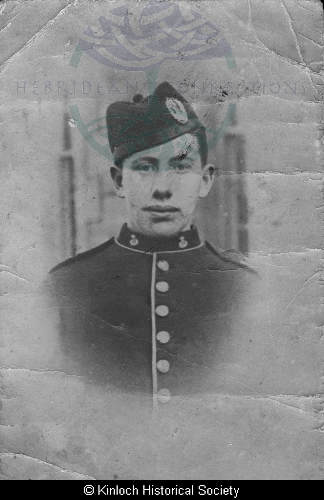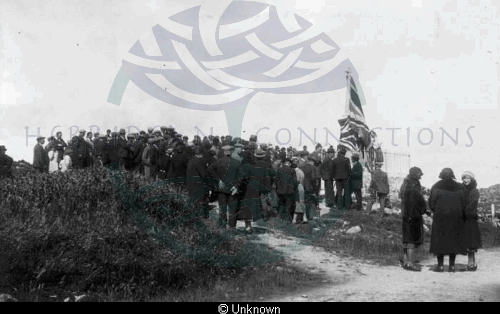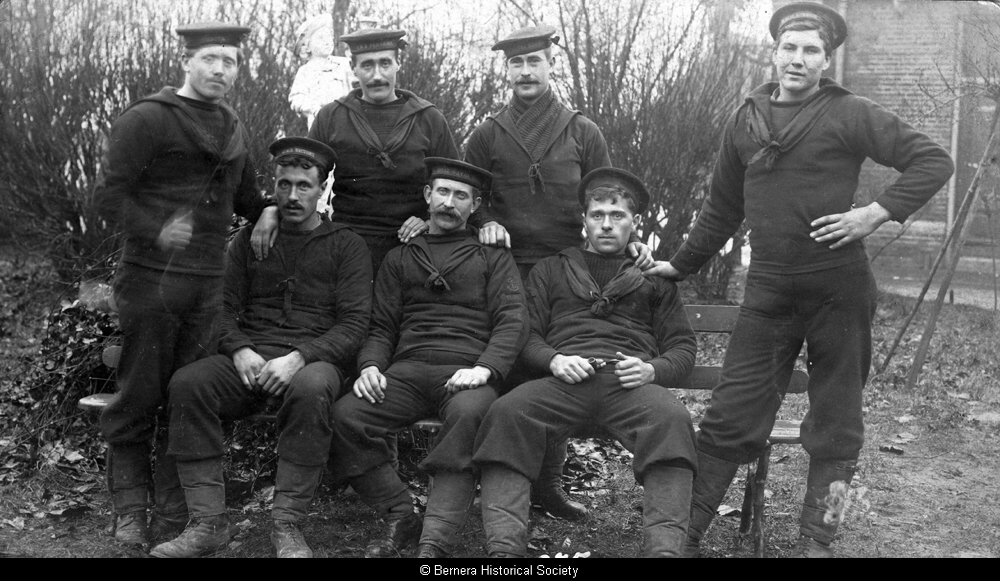8680: First World War
The First World War (1914-1918), also known as the Great War or World War One, had a tremendous impact on the population of the Western Isles, despite their remoteness from the theatres of battle. On Sunday 2 August 1914, virtually the whole able-bodied male population of Lewis in particular was called to join up immediately, as reported in the Highland News. After their departure the following day, the island would never be the same again.
The long absence of the workforce interrupted forever the traditional crofting and fishing patterns that had sustained the islands. Many of those who left did not return and a final, bitter blow was struck on 1 January 1919 when, with the sinking of the Iolaire, 200 returning sailors were lost, some within sight of their homes. Apart from a few Mercantile Marine seamen, they were all naval reservists who had been demobbed from the Royal Navy or were coming home for leave at the New Year.
In Scotland’s War Losses, Duncan Duff writes:
The island of Lewis lost 1,151 men out of 6,712 serving. This was not an excessively high proportion of deaths from the number serving – a little more than 17 per cent – and in many Scottish districts it was exceeded. To realise the full significance of the figures, however, it must be remembered that, to an extent unknown in the industrial centres, practically every fit man in the island was early in the forces, or 6,712 out of a total population of 29,603 men, women and children. If the ratio of the killed to the total population be considered, the island paid twice as much as the rest of the kingdom in its sacrifice. What, indeed, had Lewis gained from its association with the Empire that it should be called on to pay so high a price? Though the above examples have been taken from the North, the South suffered no less, and in pastoral Tweeddale, the County of Peebles was, for its population, but a fraction behind Lewis in its war losses.
The extraordinary high casualty rate sustained by Scotland in the war is reflected in the fact that out of the ten British infantry regiments that bore the heaviest losses, six were Scottish. In Your Country Needs You, Martin Middlebrook provides the following figures:
1. Scots Guards, 1,393.
4. Seaforth Highlanders, 1,031.
6. Gordon Highlanders, 976.
8. Cameron Highlanders, 961.
9. King’s Own Scottish Borderers, 935.
10. Black Watch, 912.
A further consequence of the Great War was another wave of emigration from the islands. Many of those who had volunteered to serve overseas had been promised that, on their return, none of them would be denied land. After the war, the reality was different. Prime Minister Stanley Baldwin appealed to “Imperialist sentiments” and urged the men to find their land abroad, in the colonies. In the early 1920s some 3,000 men emigrated from Lewis alone, compounding the effects of the war, and similar losses were felt throughout rural Scotland. The Metagama was one emigrant ship that came to symbolise this wave of departures.
Details
- Record Type:
- Historical Event
- Date / From:
- 28 Jul 1914
- To:
- 11 Nov 1918
- Record Maintained by:
- HC


